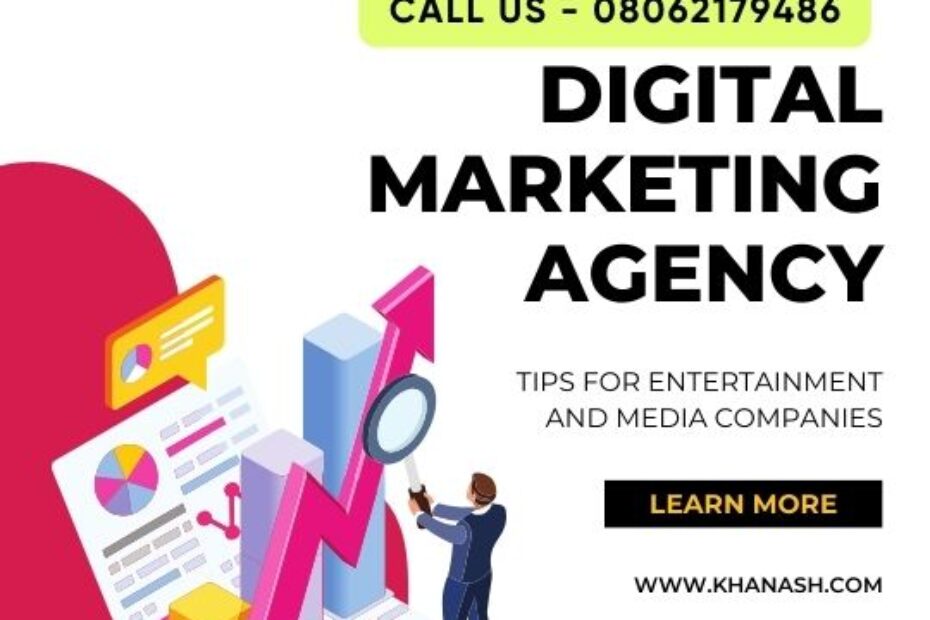The entertainment and media industry, encompassing movie studios, music production companies, and online streaming services, is a dynamic and rapidly evolving sector. To stay competitive and reach a wider audience, businesses in this industry must leverage effective digital marketing strategies. Here are some key tactics that can help entertainment and media companies achieve their goals.
1. Social Media Marketing
Social media platforms are essential for engaging with audiences, promoting content, and building brand awareness. Here are some strategies:
- Platform Selection: Identify where your audience spends their time. For example, Instagram and TikTok are great for visual content and younger audiences, while Facebook and Twitter are suitable for broader reach.
- Content Variety: Share a mix of content, including behind-the-scenes looks, trailers, interviews, and user-generated content. Engage followers with interactive posts like polls and quizzes.
- Consistent Posting: Maintain a consistent posting schedule to keep your audience engaged. Use tools like Hootsuite or Buffer to plan and schedule posts.
2. Content Marketing
Content marketing is a powerful way to tell your story, engage your audience, and showcase your offerings. Key strategies include:
- Blogs: Publish blog posts that delve into industry trends, behind-the-scenes stories, and insights into your projects. This helps establish your brand as a thought leader.
- Videos: Create high-quality video content, such as trailers, music videos, interviews, and documentaries. Video content is highly engaging and shareable.
- SEO-Optimized Content: Ensure your content is optimized for search engines to attract organic traffic. Use relevant keywords and optimize meta descriptions, titles, and headers.
3. Search Engine Optimization (SEO)
SEO is crucial for increasing your visibility online and attracting organic traffic. Here are some SEO best practices:
- Keyword Research: Identify relevant keywords that potential audiences might use to find your content. Use tools like Google Keyword Planner and Ahrefs.
- On-Page SEO: Optimize your website’s content, meta tags, headers, and images with targeted keywords. Ensure your site is mobile-friendly and loads quickly.
- Backlinking: Build high-quality backlinks from reputable websites to improve your site’s authority and ranking.
4. Email Marketing
Email marketing remains an effective way to reach and engage your audience. Strategies to consider:
- Newsletter Campaigns: Send regular newsletters with updates, exclusive content, and promotions. Use storytelling to keep your audience engaged.
- Segmentation: Segment your email list based on user preferences, behavior, and demographics to send personalized content.
- Automated Campaigns: Set up automated email sequences for new subscribers, event reminders, and follow-ups to ensure timely communication.
5. Influencer Marketing
Collaborating with influencers can help you reach a larger and more engaged audience. Here’s how to do it effectively:
- Identify Relevant Influencers: Choose influencers whose audience aligns with your target demographic. Look for genuine engagement and relevance rather than just follower count.
- Creative Collaboration: Work with influencers to create authentic and engaging content that resonates with their audience. This could include sponsored posts, product placements, or co-created content.
- Track Performance: Use tracking tools to measure the impact of your influencer campaigns. Analyze metrics like reach, engagement, and conversions.
6. PPC Advertising
Pay-per-click (PPC) advertising can drive targeted traffic to your website or specific content. Here’s how to leverage PPC effectively:
- Google Ads: Use Google Ads to target specific keywords related to your content. Create compelling ad copy and optimize landing pages for conversions.
- Social Media Ads: Run targeted ads on platforms like Facebook, Instagram, and YouTube. Utilize advanced targeting options to reach your ideal audience.
- Retargeting Campaigns: Implement retargeting campaigns to re-engage users who have previously visited your site or interacted with your content.
Conclusion
The entertainment and media industry is highly competitive, and effective digital marketing is essential for success. By leveraging social media marketing, content marketing, SEO, email marketing, influencer marketing, and PPC advertising, businesses can engage their audience, build brand awareness, and drive growth. With thoughtful planning and execution, these strategies can help entertainment and media companies reach new heights and captivate audiences around the world.

I’ve been exploring for a bit for any high-quality articles or blog posts on this kind of area . Exploring in Yahoo I at last stumbled upon this website. Reading this information So i’m happy to convey that I have a very good uncanny feeling I discovered exactly what I needed. I most certainly will make certain to do not forget this website and give it a glance regularly.